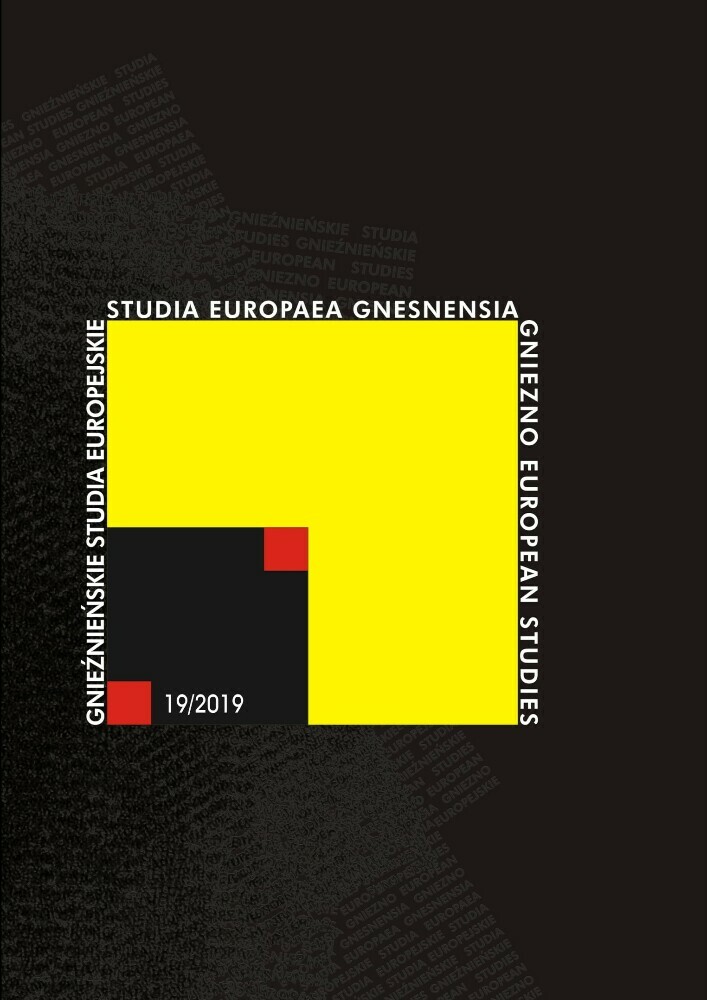Abstrakt
The pattern of education of the Polish noble youth in the seventeenth century changed in comparison with the preceding century. In the latter, the mul-tinational, multicultural and multidenominational nature of the Polish-Lithuanian Commonwealth nurtured attitudes of widely understood tolerance both in terms of ideology and in practice. Poland was receptive to strong Re-naissance influence, while numerous sons of the Polish nobles studied abroad, mainly in Italy but also in Germany and France. The education system in the Jagiellonian monarchy of reflected the trends and the ideals of contemporary European education. The seventeenth century saw increased influence of the Counter-Reformation in the Nobles’ Commonwealth.
The ideas of Sarmatism, embracing xenophobia, religiosity and self-glorification of the existing, petrified political system, became more pro-nounced. These tendencies were broadly present in the pattern of the educa-tion of nobility, a pattern that was prone to strong Jesuit influence in the spirit of the doctrine laid down by the Council of Trent.
Bibliografia
Bruckner A. 1958, Dzieje kultury polskiej II, Warsaw.
Butterwick R. (ed.) 2010, Rozkwit i upadek I Rzeczypospolitej, Warsaw.
Cynarski S. 1974, Sarmatyzm – ideologia i styl życia, [in:] J. Tazbir (ed.), Polska XVII wieku, Warsaw, pp. 74, 220-243.
Gawarecki S. 2013, Droga do Francyjej, do Paryża, [in:] M. Kunicki-Goldfinger (ed.), S. Gawarecki, Diariusz drogi. Podróż Jana i Marka Sobieskich po Europie 1646-1648, Warsaw, pp. 81-263.
Kot S. 1919-20, Polacy na studiach w Orleanie w XVI i XVII wieku [Les Polonais étudiant à Orléans au XVIe et au XVIIe siècle], [in:] Bulletin International de l’Académie Polonaise des Sciences et des Lettres, Cracow, pp. 336-338.
Kunicki-Goldfinger M. 2013, Sebastiana Gawareckiego relacja z europejskiej podróży Jana i Marka Sobieskich 1646-1648, [in:] M. Kunicki-Goldfinger (ed.), S. Gawarecki, Diariusz drogi. Podróż Jana i Marka Sobieskich po Europie 1646-1648, Warsaw, pp. 9-56.
Kurdybacha Ł. 1976, Staropolski ideał wychowawczy, [in:] J. Miąso (ed.), Pisma wybrane 1, Warsaw, pp. 27-168.
Laboureur de J. 1822, Relacja Laboureura z podróży Pani de Guebriant do Polski w roku 1646, [in:] J. Ursyn Niemcewicz (ed.), Zbiór pamiętników historycznych o dawnej Polszcze IV, Warsaw, pp. 261-262.
Opaliński K. 1957, To his brother Łukasz, letter from Poznań, February 18, 1653, [in:] R. Pollak (ed.), Listy Krzysztofa Opali – skiego do brata Łukasza 1641-1653, Wrocław.
Ossoliński Z. 1976, Instrukcyja Jerzemu Ossolińskiemu dana od ojca jego w Zgórsku, na wyjezdnym do Lowanium, die 14 maii anno Domini 1613, [in:] W. Czapliński (ed.), J. Ossoliński, Pamiętnik, Warsow, pp. 37-39.
Pollak R. (ed.) 1953, Stanisław Herakliusz Lubomirski, Wybór pism, Wrocław.
Potocki W 1907, Ogród fraszek I, Lwów.
Sajkowski W., Zielaskowska E. 2013, Le corps et les exercices physiques des honnêtes gens aux XVIIe et XVIIIe siècles, [in:] M. Forycki, A. Jakuboszczak, M. Serwański (eds.), Jeux et sports de la Renaissance à nos jours, Poznań, pp. 99-105.
Serwański M. 2004a, Les formes de l’éducation des filles nobles en Pologne aux XVIe, XVIIe et XVIIIe siècles’, [in:] Ch. Grell and R. de Fortanier (eds.), L’éduńation des jeunes filles nobles en Europe, XVIIe-XVIIIe siècles, Paris, pp. 75-85.
Serwański M. 2007b, Être une reine étrangère: deux Françaises en Pologne, [in:] I. Poutrin, M-K. Schaub (eds.), Femmes & pouvoir politique. Les princesses d’Europe XVe-XVIIIe siècle, Rosny-sous-Bois, pp. 193-200.
Serwański M. 2011c, La Pologne nobiliaire et la France: liens de cœur ou de raison?, [in:] Annales 13, Warsaw and Paris, pp. 14-49.
Serwański M. and Napierała K. 2014, The Presence of Francophonie in Poland from the Sixteenth Century to the Eighteenth, [in:] V. Rjéoutski, G. Argent, D. Offord, (eds.), European Francophonie: The Social, Political and Cultural History of an International Prestige Language, pp. 307-36.
Sobieski J. 1991a, Peregrynacja JW. JMP Jakuba Sobieskiego, wojewody generalnego ziem ruskich [1607-1613], [in:] J. Długosz (ed.), J. Sobieski, Peregrynacja po Europie i Droga do Baden, Wrocław, pp. 43-167.
Sobieski J. 2013b, Instrukcja synom moim do Paryża, [in:] M. Kunicki-Goldfinger (ed.), S. Gawarecki, Diariusz drogi. Podróż Jana i Marka Sobieskich po Europie 1646-1648, Warsaw, pp. 63-78.
Targosz K. 1985, Jana Sobieskiego nauki i peregrynacje, Wrocław, pp. 67-122.
Tazbir J. 2013, Kultura szlachecka w Polsce. Rozkwit, upadek, relikty, Poznań.
Żołądź D. 1990a, Ideały edukacyjne doby staropolskiej. Stanowe modele i potrzeby edukacyjne szesnastego i siedemnastego wieku, Warsaw-Poznań, pp. 182-6.
Żołądź D. 1994b, Podróże edukacyjne Polaków w XVI i XVII wieku, [in:] J. Hellwig, W. Jam¬ro¬żek, D. Żołądź, (eds.), Z prac poznańskich historyków wychowania, Poznań, pp. 29-63.
Żołądź-Strzelczyk D. 1998, „Jako rządzić mają rodzice córki swe”. Poglądy na wychowanie kobiet w Polsce XVI-XVIII wieku, [in:] W. Jamrożek and D. Żołądź-Strzelczyk (eds.), Rola i miejsce kobiet w edukacji i kulturze polskiej 1, Poznań, pp. 53-63.
